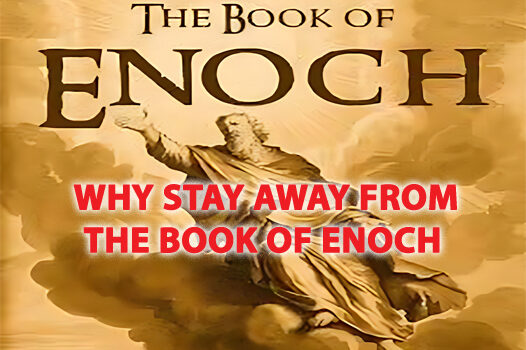Why stay away from the book of enoch
The Book of Enoch is a fascinating piece of literature that is said to have been written by the biblical figure Enoch, believed to have lived many years ago. It is one of the texts that helps us understand what Jewish mysticism means in relation to apocalyptic literature. However, despite its interest for researchers and fans, there are strong reasons why we must be incredulous about it.
Non-traditional status: The Enoch Book was not admitted into canon scripture by traditional Jews as well as Christians; it remains out of the Jewish Tanakh and Bible, with early church fathers doubting its authenticity.
An unclearly understood authorship of The Book of Enoch was credited to biblical Enoch tenable on its linguistic style, which seems to have been much later between the third century B.C.E. and the first century C.E. This long time gap raises questions both on whether the book could have been authored by the historical Enoch and on its content accuracy.
The Book of Enoch contains narratives in contrast with canonical biblical texts. Their cosmologies are detailed, accompanied by angelology and eschatological themes. Though intriguing, it is easy to mix them up to be myths or theology, leading to confusion.”
Influence on Early Christian Thought: Despite not being part of the Bible, The Book of Enoch has influenced early Christian thought and literature, with many references to Enochic traditions being present in the New Testament, especially the Epistle of Jude, yet this does not validate its Canonicity but indicates its historical importance.
“The Book of Enoch has numerous versions and translations, but there are certain deviations in this version as found in the Hebrew text. Ethiopic Enoch is thought to be the best version of the Book of Enoch, and it is also referred to as 1 Enoch. Nevertheless, over time, other fragments have been unearthed and many manuscripts have been found, which adds difficulty in understanding.”
Ethiopian Orthodox Canon: Despite the fact that the Ethiopian Orthodox Church includes Enoch in its canon, it is not universally accepted within Christianity. Different Christian denominations have diverse opinions concerning the canonical nature of some texts; thus, merely including Enoch within the Ethiopian Church’s religious books does not necessarily make it authoritative across all traditions.
Theology: Theology found in this book is so divine that it can diverge from what mainstream Christianity describes, creating issues related to its consistency with respect to doctrines as well as conformity to standard Christian beliefs. Considering it theologically requires caution.
Some Gnostic and Esoteric interpretations argue that the book of Enoch is a Gnostic work. In some Gnostic and Esoteric interpretations, the Book of Enoch is said to have been written by an angel named Uriel or Metatron rather than the prophet Enoch. Over the years, such interpretations have often turned it into an esochristian or enochic document consisting mostly of Greek metaphysics mingled with Jewish lore, among other things. In Gnostic and Esoteric circles, the Book of Enoch is associated with the so-called ‘unnamed authorities’ because Enoch was one of them, according to some interpretations. The very word ‘un-named authorities’ can mean either demons or aliens, depending upon which exact Gnostic text you are reading at any given time. Some alternative spiritualities offer a final unity that can be understood by many names, such as God, the Soul, or the Tao.
Understanding the historical and cultural context of a book is crucial when wanting to correctly interpret its importance; it shows how people were thinking during those times!’ The Book of Enoch would not be any different, given that it was an immense part of Hebrew literature.
Critical scholarship involves using methods of critical analysis when studying the Book of Enoch. In other words, it examines how the book came into being, how the language it uses evolved over time, and the society in which it was written. Such research deepens our comprehension of this material; however, this also serves to underscore the multifaceted nature of Enoch’s origins and meanings.
But it is necessary to handle it with caution and vigilance, keeping in mind its non-canonical status, doubtfulness, and a wide range of interpretations, which demand from us careful examination and judgement. Despite this enlightening our comprehension of ancient Jewish mysticism and early Christian thought, it shouldn’t be confused with canon scripture nor should it be used to found doctrinal beliefs; instead, this volume deserves specific attention paid to its historical and cultural context, where comprehension means accepting its fictional nature alongside understanding complexities as well as deficiencies since it is also a literary and religious text.
